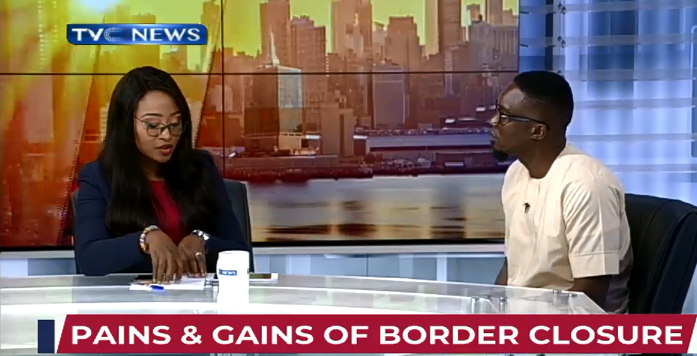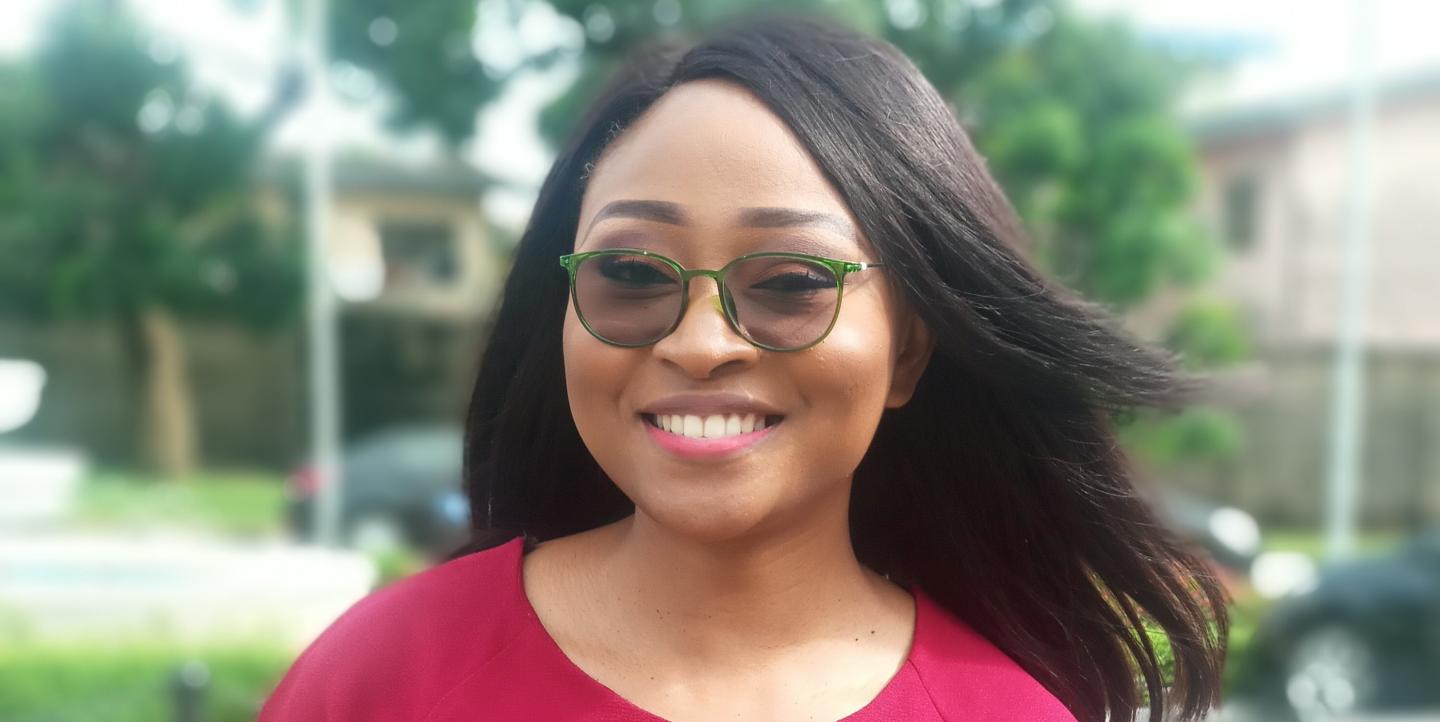Veronica Dan-Ikpoyi loved broadcast journalists when she was growing up in Nigeria, and it was her long-time interest that inspired her to go into journalism.
“Growing up, I wasn't sure it was about storytelling. I was just intrigued by seeing people on the air talking — I love the way they spoke. That drove me to get into journalism,” Dan-Ikpoyi said. “When I got into journalism, [however], I began to see there was more I could do.”
She began in radio, and shortly afterwards shifted to TV, where she felt more comfortable. Before long, Dan-Ikpoyi fell in love with storytelling, and began to notice stories all around her were being left untold. She saw many women suffering, but the injustices they endured were going unreported.
In 2016, Dan-Ikpoyi reported on female genital mutilation (FGM) in Nigeria for TVC News. Her story mixes data and personal interviews to show FGM’s cultural significance and harmful effects. The story ultimately won her international recognition after she was selected as a finalist for the CNN African Multichoice Journalist of the Year — an opportunity she found through IJNet.
Dan-Ikpoyi traveled with other finalists to South Africa as part of the opportunity. “I’ll forever remember that experience,” she said. “It was a life-changing experience because I got to meet people who were in the field doing so much important work. That was one of the high points of my career.”
Now one of the hosts of the TVC Breakfast show, she presents the country’s daily headlines by interviewing Nigerian experts and leaders. Still, Dan-Ikpoyi goes into the field whenever she has a chance to shed light on the stories she feels need to be told.
IJNet: You’re an anchor on a popular breakfast show, but your most acclaimed work is out in the field. Do you still find time to work as a field reporter?
Dan-Ikpoyi: I was employed as an anchor, but I found out I loved going [into the field] to do human interest stories. So as much as possible — as much as I'm allowed to — I go out to get the job done. I recently did a story focused on migration, and I’m working on a story about mental health now.
When I have an idea for a story that I feel most people are not paying attention to, I put it together to bring it before my bosses. It can take about two to three months because I'm a major anchor in the morning show and I can't just run off, but as soon as I get the go ahead, I get to work.

We haven’t featured many broadcasters as Journalists of The Month. What are the benefits of broadcast news over, say, print journalism?
The benefit is basically that you're out there so people get to know you, and people get to see you. If they love your work — if they love what you do — they want to reach out to you to work with you, which gives you the opportunity to do other things. When you go somewhere, it opens the doors for you, especially if you are on a popular platform.
Why did you choose to go into journalism?
I'm passionate about people and I love telling stories. When I get the opportunity, I want to do it as much as I can.
I hate injustice, and I hate to see women suffer. I know women go through a lot, and we haven't been telling stories focused on women and the challenges they face, especially when it comes to cultural practices, and things like that. When I had the opportunity to do the story on female genitial mutilation, I gave it all I could.
That story earned me recognition, but there are other aspects of injustice when it comes to women that have not been reported as they should.
Women struggle as they try to get out of the country, and with health issues. Who is telling those stories, and how regularly? The more we tell them, the more it reaches the minds of people and government, and the more things begin to change.
Why do you think stories about the injustices women face go untold?
“It's a man's world,” as it is said, and in [the reporting] space these stories are sometimes seen as “too soft.” Women want to portray that they are capable of doing things people think they can't do, so they take on stories that are — what we'll call — “strong stories.”
Women’s stories are soft because they’re just regular things that women face. People think, “What is there to talk about?” However, they are not regular. They are issues that a lot of women face.
Because we have to prove our strength, we are forced to take on other stories, and then women’s stories fall to the wayside.
You’ve said you’ve faced discrimination and harassment as a woman in this industry. What advice would you give other women attempting to overcome similar hurdles?
First they have to be confident in themselves, and they need to believe they are capable of achieving anything. They also have to be very knowledgeable because one aspect that can be used against them is that someone may claim they have no idea what they are doing. Read wide, be knowledgeable, be confident and be ready to take on any topic or task.
Women also need to dedicate themselves to this field because journalism takes a lot of time from you as a woman. Be ready to do the job, and go the whole hog to get the job done. Try to develop and explore your strengths, instead of being lazy or being scared to take on any task.
What advice would you give to aspiring journalists, especially those hoping to go into the broadcast field?
They should open themselves up to learning. I've seen most people just want to get on TV immediately, but there is a process, and this process grounds you as a journalist. If you're not grounded, you won’t be able to exude confidence.
Learn the production process by getting on the production desk and opening yourself up to learning. Learn how to research, because broadcasting is all about information. Learn how to write scripts and get behind the camera. It may be challenging, and it may be difficult or annoying. However, this work is not just about being on TV, it's about what you can offer while you're on TV.
As a broadcast journalist, sometimes you need to ad-lib over live news, and if you do not have the background knowledge, what would you say? I would advise them to go through the process and open their minds to learning everything they can, so that when their time comes, they won't ever look incompetent.
All images courtesy of Veronica Dan-Ikpoyi.

